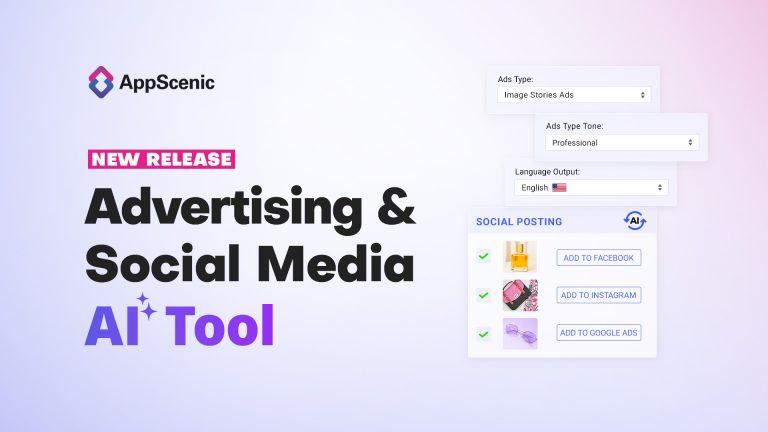In the dynamic realm of ecommerce, the connections you build with suppliers are pivotal to your prosperity. Optimal supplier partnerships can influence product quality, availability, and customer satisfaction.
This article provides a comprehensive guide to connecting with new suppliers, empowering you with the tools to establish robust, enduring partnerships for your e-commerce dropshipping venture.
Table of Contents
Understanding Your Business Needs
Before embarking on your supplier journey, you must thoroughly comprehend your business identity. Determine your target market, delineate your niche, and identify products harmonising with customer demands. This clarity serves as a compass, guiding your search for suppliers that resonate with your business ethos.
Researching Potential Suppliers
The digital age proffers a wealth of resources for uncovering potential suppliers. Online platforms, like directories and marketplaces, offer a plethora of options spanning diverse industries. Additionally, participating in industry events and trade shows provides a unique opportunity for direct interactions with suppliers, allowing you to assess their offerings firsthand.
Evaluating Supplier Suitability
When delving into the realm of supplier partnerships, it’s vital to recognize that suppliers are not homogenous entities; they can be broadly classified into two primary categories: manufacturers and distributors. Distinguishing between these two categories is pivotal as it impacts your sourcing strategies and the dynamics of your ecommerce store.
Manufacturers: Crafting Goods from the Source
Manufacturers hold a distinct position in the supply chain as they are responsible for crafting goods directly. They transform raw materials and components into finished products. This type of supplier is ideally suited for ecommerce businesses seeking customization, specialized items, or unique designs. Direct access to manufacturers often results in a more profound understanding of product quality and specifications.
Evaluating manufacturers involves scrutinizing their production processes, quality control measures, and capacity to meet your demands. Consider their production lead times, ability to accommodate customizations, and whether they provide consistent access to the products you require. Engaging with manufacturers often demands larger order volumes, making it more suitable for businesses with established sales.
Distributors: Bridging Supply and Demand
On the other hand, distributors also referred to as wholesalers, function as intermediaries between manufacturers and retailers. They procure products in bulk from various manufacturers and then distribute them to retailers. Distributors offer a curated range of products from multiple sources, making them an optimal choice for ecommerce businesses seeking variety without the commitment of large order volumes.
Evaluating distributors involves assessing their range of products, their sourcing strategy, and their distribution efficiency. Key factors include the diversity of its product portfolio, the reliability of its supply chain, and the flexibility of its order quantities. Distributors often enable e-commerce businesses to access a broader range of products without the complexities of direct engagement with multiple manufacturers.
Making Informed Decisions
Both manufacturer and distributor relationships have their merits, contingent upon your business objectives and operational capabilities. Manufacturers excel in offering customization and direct oversight of production, making them suitable for businesses with specific product requirements. Distributors, on the other hand, provide convenience and access to a diverse product range, which can benefit businesses looking to expand their offerings rapidly.
Evaluating the suitability of each supplier type involves understanding the nature of your business, projected sales volume, and the level of control you desire over product design and quality. It’s prudent to engage in detailed discussions with potential suppliers, asking pertinent questions related to order quantities, lead times, customization options, and quality assurance processes.
Attributes of a Reliable Supplier
Trustworthy suppliers share a set of attributes that signify successful collaborations. Efficiency in order processing, seamless shipping, and committed customer support signifies a reliable supplier. Suppliers who invest in technology and offer comprehensive support demonstrate their dedication to value beyond products.
What Makes a Good Supplier?
Selecting the right supplier is pivotal for the success of your ecommerce store. Reliable suppliers exhibit a range of qualities that set them apart, ensuring a seamless and mutually beneficial partnership. Here are the main attributes that define a good supplier:
Organizational Efficiency
Efficiency in operations ensures that orders are processed smoothly and promptly. A well-organized supplier can manage inventory effectively, reducing the likelihood of stockouts and delays.
Technological Investment
Suppliers who invest in technology demonstrate their commitment to staying current and providing an enhanced experience. Technological tools, such as comprehensive online catalogs and customizable data feeds, simplify the ordering process and streamline operations.
Dedicated Support Representatives
Having a dedicated sales representative fosters better communication and problem-solving. It provides you with a direct point of contact who understands your business and can promptly address any concerns.
Choosing a supplier with these core qualities can create a foundation for a successful and enduring partnership, helping your ecommerce store thrive in a competitive market. Additionally, industry expertise, centrality of location, seamless order processing, and stability further contribute to a supplier’s reliability and suitability for your business.
Methods to Find New Suppliers
Exploring new suppliers encompasses varied approaches. Initiating direct contact with manufacturers and distributors enables you to inquire about their offerings and policies. Placing small orders with competitors and tracing original shippers can unveil hidden supplier gems. Online forums and communities are a rich source of recommendations from experienced members. Harnessing the power of Google search extends your reach beyond traditional directories.
Exploring Supplier Directories
Supplier directories, including Wholesale Central, WorldWide Brands, Doba, and SaleHoo, offer curated lists of verified suppliers. These directories expedite the search by providing pre-screened contacts. However, exercising due diligence remains crucial to ensure compatibility with your business prerequisites.
Direct Contact with Manufacturers and Distributors
Initiating direct communication with manufacturers and distributors is a proactive approach. Reach out to them to gain insights into their product offerings, pricing structures, and partnership policies. This method allows you to establish a personalized connection and inquire about their capabilities to meet your business demands.
Placing Small Orders and Tracing Original Shippers
Consider a tactical approach by placing small orders with your competitors. Upon receiving the package, trace back to the original shipper. This technique unveils suppliers that might be concealed behind blind shipping. While this method might not always yield direct contacts, it can provide valuable leads for further investigation.
Leveraging Online Forums and Communities
Online forums and communities tailored to ecommerce and dropshipping are treasure troves of insights. Seasoned members often share recommendations based on their experiences. Engage in these platforms to gather suggestions and testimonials about potential suppliers. Such peer-to-peer insights can guide you towards reliable sources.
Seeking Referrals and Recommendations
Tap into your professional network and seek referrals from industry peers or business contacts. Recommendations from those with firsthand experience can provide valuable shortcuts to reputable suppliers. Personal referrals often come with insights into supplier responsiveness, product variety, and reliability.
Utilizing Social Media Platforms
Social media platforms like LinkedIn and industry-specific groups on platforms like Facebook can be utilized to connect with potential suppliers. Join relevant groups, participate in discussions, and explore supplier profiles to identify potential partners. Social media can foster direct connections and offer insights into supplier culture.
Harnessing the Power of Google Search
Google’s vast information landscape can be harnessed to your advantage. Perform thorough searches using specific keywords such as “wholesale supplier for [product category]” or “dropshipping supplier for [niche]”. Be prepared to dig through multiple search results to uncover suppliers that might not be at the forefront of online directories.
Engaging in Trade Shows and Events
Participating in industry-specific events presents unparalleled networking opportunities. Face-to-face interactions enable you to gauge potential suppliers’ demeanour, expertise, and products. These events and trade shows offer a platform to nurture relationships that can transcend the digital sphere.
In the quest to find new suppliers, diversification is key. Employing a mix of these methods widens your reach, ensuring that you explore both conventional and unconventional avenues.
Keep in mind that supplier suitability, product quality, and compatibility with your business model should be at the forefront of your evaluation process.

How to Get in Touch with New Suppliers for Your Ecommerce Store
Creating a successful ecommerce store relies heavily on establishing robust connections with trustworthy suppliers. The process of reaching out to and collaborating with new suppliers demands strategic finesse, thoughtful planning, and effective communication.
This comprehensive guide will lead you through the intricate journey of initiating supplier relationships, which forms the bedrock of triumph in the realm of ecommerce.
Crafting Effective Communication
- Articulating Intent: Begin by composing succinct and purposeful messages that convey your eagerness to collaborate. Clearly express your desire to establish a supplier partnership and highlight the potential mutual advantages. Openly sharing your business objectives and values lays the groundwork for meaningful interactions.
- Maintaining Professionalism: The importance of professionalism cannot be overstated in initial communications. Address suppliers with respect, employing suitable salutations and language. Convey your business identity and goals in a professional manner, instilling a sense of assurance in potential partners.
- Brevity and Engagement: While comprehensively communicating your intentions, retain brevity to honor the recipient’s time. Spotlight the distinctive attributes of your ecommerce store that make collaboration enticing. Engaging suppliers authentically by expressing genuine interest in their offerings further enhances your outreach.
Initiating Contact: Crafting the Perfect Introduction
- Introduction Email: Your introductory email should be meticulously structured. Clearly communicate your interest in collaboration and outline the benefits that collaboration can bring to both parties. Present your business, its principles, and how it could contribute valuably to the partnership.
- Requesting Information: Concurrent with your introduction, seek crucial information like product catalogs, pricing specifics, minimum order quantities, and shipping arrangements. This gesture underlines your commitment to exploring collaboration more deeply.
Here are 3 email templates that you can use for inspiration:
**Email Template 1: Personalized and Enthusiastic Approach**
Subject: Let’s Join Forces to Create Something Special!
Hi [Supplier’s Name],
I hope this email finds you in good spirits. I wanted to reach out personally and express my admiration for the exceptional work you do at [Supplier’s Company Name]. The passion and dedication you bring to crafting [Product Category] truly caught my attention.
I am the founder of [Your Ecommerce Store Name], a dynamic player in the [Your Niche] market. Our journey has been about bringing innovative, high-quality products to our customers, and that’s why I believe we could make a fantastic team.
As I perused your [Product Category] offerings, I was impressed by [Highlight a Specific Product/Category]. Your commitment to [Supplier’s Value or Philosophy] is evident, and it resonates with what we stand for.
Could you share more details about your product range, including pricing structures, minimum order quantities, and shipping logistics? We’re excited about the prospect of introducing your products to our loyal customer base.
Let’s explore the potential of a partnership that benefits both our businesses and delights our customers. Your expertise combined with our passion could result in something truly extraordinary.
Looking forward to your response!
Warm regards, [Your Name] Founder, [Your Ecommerce Store Name] [Your Contact Information]
**Email Template 2: Direct and Persuasive Approach**
Subject: Collaboration Opportunity: Enhancing Our Offerings Together
Hi [Supplier’s Name],
I trust this email finds you in good health. My name is [Your Name], and I represent [Your Ecommerce Store Name]. Your impressive range of [Product Category] products has captured our attention, and we see a clear opportunity for collaboration that could benefit us both.
Our focus lies particularly on [Highlight a Specific Product/Category], and we’re eager to gather more information regarding pricing, minimum order quantities, and shipping details. Your expertise and quality align well with our commitment to excellence.
I propose that we connect at your convenience to discuss how our partnership can create a unique value proposition for both our businesses. Your insights and our market presence could lead to a compelling offering.
Looking forward to your response and the potential of working together.
Warm regards, [Your Name] [Your Ecommerce Store Name] [Your Contact Information]
**Email Template 3: Informal and Curious Approach**
Subject: Exploring a Win-Win Partnership
Hey [Supplier’s Name],
Hope this email finds you well. I’m [Your Name], the driving force behind [Your Ecommerce Store Name]. I stumbled upon your [Product Category] collection and was genuinely impressed by the quality and uniqueness.
I’m curious to know more about your pricing structure, minimum order quantities, and how shipping is handled. Our store has a dedicated audience that appreciates exceptional products like yours.
Could we chat sometime to see if there’s potential for a collaboration? Your insights and our market presence could be a fantastic combination.
Looking forward to hearing from you.
Cheers,
[Your Name]
[Your Ecommerce Store Name]
[Your Contact Information]
Negotiating Win-Win Agreements
- Transparent Negotiations: Once preliminary information has been exchanged, engage in candid negotiations. Discuss pricing, terms, and shipping arrangements with transparency. Prioritize crafting agreements that are mutually advantageous, thus establishing a bedrock of trust.
- Flexibility and Compromise: Flexibility is pivotal during negotiations. Be prepared to find common ground, especially if you are a newer business endeavoring to establish relationships. Demonstrating a willingness to compromise underscores your dedication to fostering a prosperous partnership.
Fostering Long-Term Relationships
- Unrestricted Communication: Flourishing supplier relationships thrive on open lines of communication. Regularly share feedback, updates, and future plans with your suppliers. This fosters a deeper understanding of each other’s expectations and guarantees alignment.
- Mutual Growth: Nurturing enduring relationships necessitates aligning your business strategies with the evolving dynamics of your suppliers. Collaboration should be a reciprocal endeavor that allows both sides to evolve, adapt, and prosper.
The journey of connecting with new suppliers is intricate, marked by strategic decisions and effective communication. This guide equips you with the tools to initiate supplier relationships that are poised to empower your ecommerce venture’s ascent.
Conclusion
Navigating the intricate terrain of supplier relationships necessitates strategic acumen, compelling communication, and a commitment to mutual growth.
By embracing the strategies elucidated herein, you’ll unearth new suppliers and foster invaluable partnerships that elevate your ecommerce store to unprecedented heights.
FAQs
- How can I determine the most suitable niche before searching for suppliers?
- Begin by researching market trends, customer preferences, and emerging industries. Analyze competitor success to identify lucrative niches.
- Are online directories the only resource for finding potential suppliers?
- While directories are valuable, other resources such as industry events, trade shows, and online forums offer diverse options.
- What attributes should I prioritize when evaluating a potential supplier?
- Efficiency in order processing, technology integration, dedicated support, industry expertise, central location, and stability are vital factors.
- Are trade shows worth the investment for supplier discovery?
- Yes, trade shows provide unparalleled opportunities for face-to-face networking, enabling you to assess suppliers’ credibility and offerings.
- How can I effectively negotiate terms with a potential supplier?
- Prioritize transparency, address concerns openly, and seek mutually beneficial terms. Be flexible while safeguarding your business interests.
- What role does technology play in modern supplier relationships?
- Technology streamlines processes enhances communication, and facilitates efficient order fulfillment, contributing to overall success.
- How can I establish and maintain transparent communication with suppliers?
- Maintain regular communication, share feedback, and address issues promptly. Cultivate an open dialogue to foster trust and collaboration.
- Should geographical location be a primary consideration when selecting suppliers?
- While central location aids shipping efficiency, technological advancements have reduced the impact of geographical distance.
- What strategies can I implement to foster enduring supplier relationships?
- Regular communication, feedback sharing, and a commitment to mutual growth are pivotal in nurturing long-term supplier relationships.
- Are there alternatives to supplier directories for discovering reliable contacts?
- Yes, attending trade shows, participating in online forums, and leveraging search engines like Google can unveil potential suppliers.











